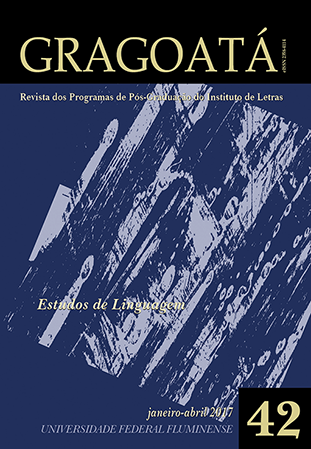Social identity and language ideology: challenging hegemonic visions of English in Brazil
DOI:
https://doi.org/10.22409/gragoata.v22i42.33477Keywords:
Language ideology. Migration. Racial identity. English as an additional language. Auto-ethnography.Abstract
This paper seeks to investigate the social identities connected to English in Brazil by connecting these to linguistic ideologies, and reflecting on how they may be challenged. It is based on first-person narration of “critical moments” from the perspective of an English language “native speaker” migrant to Brazil. The reflections identify how race is intimately connected to the “native speaker” category, theorised through the notions of “racial acceptability” and “racial capital”, drawing on a Bourdieusian theoretical framework. The article concludes with examples of challenges to the “native speaker” model in the hybrid linguistic practices of Brazilian youth.
---
DOI: http://dx.doi.org/10.22409/gragoata.2017n42a894
---
Original in English.
Downloads
Downloads
Published
Issue
Section
License
Authors who publish in Gragoatá agree to the following terms:
The authors retain the rights and give the journal the right to the first publication, simultaneously subject to a Creative Commons license CC-BY-NC 4.0, which allows sharing by third parties with due mention to the author and the first publication by Gragoatá.
Authors may enter into additional and separate contractual arrangements for the non-exclusive distribution of the published version of the work (for example, posting it in an institutional repository or publishing it in a book), with recognition of its initial publication in Gragoatá.

Gragoatá is licensed under a Creative Commons - Attribution-NonCommercial 4.0 International.











